Arvind Subramanian - Of Counsel: The Challenges of the Modi-Jaitley Economy
Here you can read online Arvind Subramanian - Of Counsel: The Challenges of the Modi-Jaitley Economy full text of the book (entire story) in english for free. Download pdf and epub, get meaning, cover and reviews about this ebook. year: 2018, publisher: Viking, genre: Science. Description of the work, (preface) as well as reviews are available. Best literature library LitArk.com created for fans of good reading and offers a wide selection of genres:
Romance novel
Science fiction
Adventure
Detective
Science
History
Home and family
Prose
Art
Politics
Computer
Non-fiction
Religion
Business
Children
Humor
Choose a favorite category and find really read worthwhile books. Enjoy immersion in the world of imagination, feel the emotions of the characters or learn something new for yourself, make an fascinating discovery.

- Book:Of Counsel: The Challenges of the Modi-Jaitley Economy
- Author:
- Publisher:Viking
- Genre:
- Year:2018
- Rating:5 / 5
- Favourites:Add to favourites
- Your mark:
- 100
- 1
- 2
- 3
- 4
- 5
Of Counsel: The Challenges of the Modi-Jaitley Economy: summary, description and annotation
We offer to read an annotation, description, summary or preface (depends on what the author of the book "Of Counsel: The Challenges of the Modi-Jaitley Economy" wrote himself). If you haven't found the necessary information about the book — write in the comments, we will try to find it.
Of Counsel: The Challenges of the Modi-Jaitley Economy — read online for free the complete book (whole text) full work
Below is the text of the book, divided by pages. System saving the place of the last page read, allows you to conveniently read the book "Of Counsel: The Challenges of the Modi-Jaitley Economy" online for free, without having to search again every time where you left off. Put a bookmark, and you can go to the page where you finished reading at any time.
Font size:
Interval:
Bookmark:



PENGUIN BOOKS

PENGUIN BOOKS
For
Bodhi, our new anchor and future
Tia, Karti, Maggie, Rohan, and Parul
Team CEA
I was in Machu Picchu, the site of the spectacular, isolated ruins of the Incan civilization in Peru, when I first received an email in July 2014 asking if Id be interested in the job of Chief Economic Adviser (CEA) to the Government of India. I was surprised, for I had no connections with anyone in the newly formed National Democratic Alliance (NDA) government. However, the prospect of working for a government with a decisive mandate, committed to reviving an economy wracked by slowing growth, rising macroeconomic troubles and corruption scandals, was unimaginably exciting.
I flew to Delhi a few days later and had encouraging meetings with Finance Minister Arun Jaitley, and Nripendra Misra, Principal Secretary to the Prime Minister. A few weeks later, the Indian media reported that I had been appointed the CEA; even the New York Times carried a long article on me. But from the government itself I heard nothingfor another two and a half months. I witnessed the media speculation silently, with as little real information as any of the speculators. I felt a bit like Mark Twain: The news of my death [read: appointment] has been greatly exaggerated.
The delay, I was later told, arose partly because the nativist sections of the ruling party were opposing me, claiming I had indulged in anti-national activities. According to the Twitter trollers, my crime was that I had testified to the US Congress, invitingeven goadingthe US to take action against India. The irony was that my testimony was actually aimed at protecting India, preventing the US from naming it as an offender on intellectual property issues. The bigger irony was that I had succeeded in my task, for which the then Indian ambassador in Washington, S. Jaishankar, duly thanked me. Eventually, I was appointed the CEA in October 2014, although the charge of being mentally un-Indian would come up occasionally during my tenure.
I left my job four years later in July 2018. My dream boss, Arun Jaitley, announced my departure while in quarantine after a major surgery, in a deeply moving Facebook post titled Thank you, Arvind. Soon after, a number of my younger colleaguesTeam CEA, as they called themselvescame with their spouses to New Delhis Indira Gandhi International Airport, where they bid my wife and me a teary farewell.
Dramatic beginnings and emotional endings bookended my nearly four-year tenure as the CEA. It was the best, most exciting, challenging and fulfilling job I have ever hadand probably ever will.
~
One of the responsibilities of having been a privileged witness to history is the need to record for future historians the events and debates, actions and reforms of these years. In that way, I can also leave behind a record of my own contributions and failures. Accordingly, this book brings together my writings and reflections during (and since) my four years as the CEA.
I suspect that retrospective assessments of these years will accord demonetization an obsessive primacy. Fair enough. Posterity has its prerogatives that the present cannot pre-empt. But in economic policymaking terms, a lot more happened (and did not happen), which posterity should not be allowed to forget. It must have the full picture, the comprehensive inputs, or to quote Salman Rushdie, not a piece of blubber but the whole wretched whale.
This volume, then, is an attempt to create such a record. Readers should be forewarned that the focus is squarely on policy debates. This is no kiss-and-tell memoir, no gossip-laden account of intrigue, backbiting, favour-trading and double-dealing, no tale of grand heroism and base betrayal. Not that the imperial spaces encompassed within Herbert Bakers awesomely symmetric domes of North and South Blocks, flanking Raisina Hill in Lutyens New Delhi, dont lend themselves to these shadier pursuits. Perhaps they are the very stuff of power.
However, the theory of comparative advantage dictates that recounting these juicier tales is best left to others: gossip columnists, Twitter trollers and screaming TV anchors who holler to their multi-screen pundits: no more than two people [talking] at the same time. Meanwhile, economists should focus on economics.
First, it might be useful to explain what a chief economic adviser actually does. In the publics eye, the role of the CEA is straightforward: it is, as the title suggests, giving the government economic advice. And this is indeed what I thought when I took office.
In fact, however, the CEA has no clear job description. The happy (or dirty) secret is that not much is actually required of him (unfortunately, there have been no women occupants of this job yet). The only requirement is to produce an annual economic survey reviewing the Indian economyand that work can be delegated, should the CEA so wish.
Similarly, any involvement in policymaking is pretty much the result of the CEAs own temperament and inclinations, whims and idiosyncrasies, efforts and relationships. There is no real obligation on anyone, anywhere in government, to consult the CEA on any policy issue. As a result, the CEA is only as useful and effective as he makes himself, or is perceived or called upon to be by other key players in the system.
In my case, I had big ambitions for my job and role. I wanted to be involved in all aspects of economic policy within and outside government. I possess a manic energy, bordering on insanity, which makes me think (probably self-delusionally) that I can juggle many balls at the same time, contribute many ideas, and in the famous characterization of Isaiah Berlin, be both fox and hedgehog. I felt I had been given this one-time opportunity that I wanted to seize and not squander.
I also felt acutely aware of how much had to be done to address Indias challenges: to transform a low-income economy into a prosperous middle-income country with all groups partaking of that prosperity in a way that would make the various divisions of caste, gender, religion, language, location and class melt away, or at least become less salient. And like all policymaking economists, I believed in Keyness famous observation that it is ideas not interests that shape the world, so it followed that the institution of the CEA was uniquely positioned to help in Indias development transformation.
I also felt I needed to live up to the tradition of the office. Every Indian economist who has even a shred of policy pretension aspires to this job. Some covet it ferociously. I was lucky enough for my dream to be fulfilled, an interloper appended to a lineage of illustrious giants who built the foundations of Indias economic policy framework, going back to I.G. Patel, V.K. Ramaswamy, Manmohan Singh, Ashok Mitra and Bimal Jalan.
In my old office room in North Block, squeezed between portraits of Rabindranath Tagore, Mahatma Gandhi and Jawaharlal Nehru, there is a board listing the names of my predecessors. Whenever I looked at it, I was reminded of the Patek Philippe advertisement: You never actually own a Patek Philippe. You merely look after it for the next generation. As the CEA, I saw myself as the custodian of a sacred tradition. I felt responsible for upholding it honourablyand, at the same time, was petrified of debasing it.
Font size:
Interval:
Bookmark:
Similar books «Of Counsel: The Challenges of the Modi-Jaitley Economy»
Look at similar books to Of Counsel: The Challenges of the Modi-Jaitley Economy. We have selected literature similar in name and meaning in the hope of providing readers with more options to find new, interesting, not yet read works.
Discussion, reviews of the book Of Counsel: The Challenges of the Modi-Jaitley Economy and just readers' own opinions. Leave your comments, write what you think about the work, its meaning or the main characters. Specify what exactly you liked and what you didn't like, and why you think so.

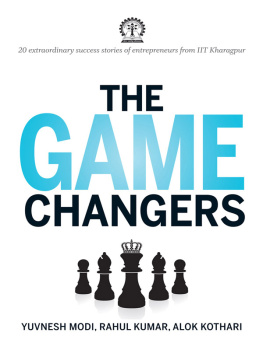
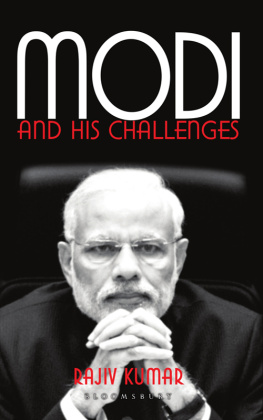
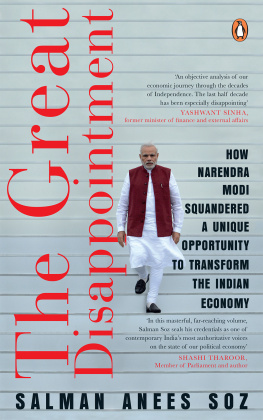
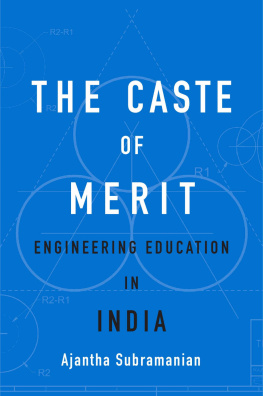
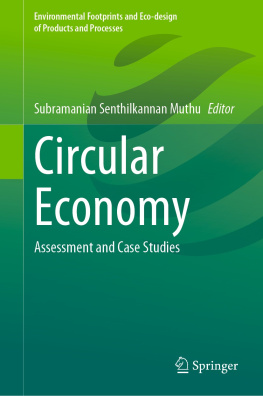

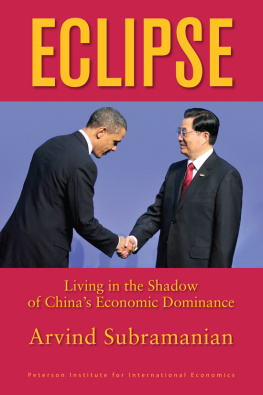
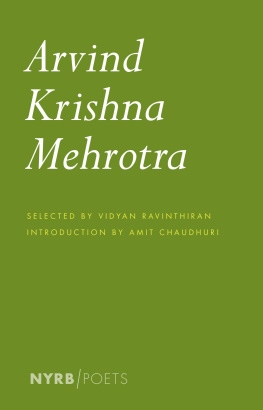
![Arvind Matharu [Arvind Matharu] - Understanding Cryptocurrencies](/uploads/posts/book/119680/thumbs/arvind-matharu-arvind-matharu-understanding.jpg)

